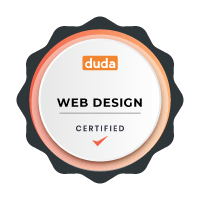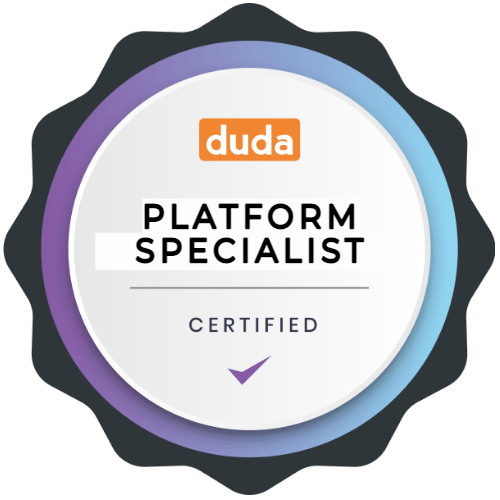Needing help with online marketing?
Hidden Costs Nobody Tells You About DIY Real Estate Websites (-$280K)
Share this post
Three years ago, I watched a successful real estate agent lose everything because of a $299 website template. She thought she was saving money. Instead, she burned through her savings, lost her agency, and ended up changing careers.
The website looked professional enough. Modern design. Property listings. Contact forms. Everything a real estate site needs, right? Wrong. That template became a money pit that swallowed her business whole.
I've seen this pattern destroy dozens of agents. They calculate website costs by template price. Meanwhile, invisible expenses accumulate until bankruptcy becomes inevitable.
Real Estate Agents Lose $6,000+ Monthly in Hidden Opportunity Costs
Sarah spent her first weekend "just setting things up." By Monday, she'd lost sixteen hours and hadn't listed a single property correctly. The template promised "drag and drop simplicity." Reality delivered complexity that would challenge web developers.
Real estate agents average $150 per productive hour when actively selling. Every hour tweaking fonts means money not earned. Sarah spent forty hours her first month on website maintenance. That's $6,000 in opportunity cost nobody mentions.
The learning curve keeps climbing. WordPress updates break your design. Plugins conflict mysteriously. Security patches need installing. Suddenly, you're a web developer who occasionally sells houses.
A better option would be building a website on a solid website builder like Duda, you can see a real Real Estate website example we've build for successfully estate agent in NSW.
How Website Crashes Cost Agents Million-Dollar Listings
My client Marcus missed a million-dollar listing presentation because his website crashed that morning. He spent three hours on support chat with offshore technicians who didn't understand real estate needs.
The sellers listed with another agent. That commission would've paid for professional web development ten times over. But Marcus was saving money with DIY.
Technical issues strike during your busiest moments. Saturday open houses coincide with server crashes. Sunday inquiries arrive while you're debugging contact forms. Prime selling time becomes troubleshooting time.
Why DIY Real Estate Websites Break After Every Update
DIY platforms update constantly. Each update potentially breaks customisations. That perfect property grid you spent days creating? Gone after Tuesday's theme update.
Plugin updates trigger compatibility disasters. Your IDX feed stops working. Virtual tours display incorrectly. Mortgage calculators calculate wrong. Each fix requires hours of research, testing, and usually more breaking.
Sarah discovered her SSL certificate had expired on a Thursday. Browsers warned visitors her site was dangerous. She lost an entire weekend's traffic before fixing it on Monday. Potential buyers don't return to "dangerous" websites.

Technical Skills Real Estate Websites Need (That DIY Platforms Don't Teach)
Real estate success requires specific technical knowledge. Schema markup for property listings. Geographic targeting for local searches. Structured data for featured snippets. DIY platforms don't teach this.
Brisbane's competitive market demands technical excellence. Properties need virtual tours, drone footage, 3D walkthroughs. Integrating these properly requires expertise beyond drag-and-drop builders.
Professional connections matter too. The best mortgage brokers in Brisbane won't recommend agents with amateur websites. They understand that an unprofessional online presence reflects on their referrals. Your DIY site costs partnerships you don't even know you're losing.
Why DIY Real Estate Sites Can't Rank on Google
Template websites share DNA with millions of others. Google's algorithms recognise these patterns instantly. Your site gets lumped with every other amateur operation using identical code.
I tested twenty DIY real estate sites last month. Nineteen couldn't rank for their own agency name. The twentieth only ranked because they had zero competition in their rural town.
Search "homes for sale [your suburb]" right now. Count how many DIY sites appear. Zero, usually. Google prioritises realestate.com.au, Domain, and professionally built agency sites. Your template never had a chance.

Duplicate Content Kills Rankings
Property descriptions get syndicated across portals. Your DIY site republishes these descriptions. Google sees duplicate content and penalises your entire domain. Recovery takes months if it happens at all.
Template platforms use identical meta descriptions for every page. Same title structures. Identical URL patterns. Google thinks you're spam before analysing actual content.
The staging sites these platforms create during setup often get indexed accidentally. Now Google sees two identical sites. Your rankings disappear while you argue with support about canonical tags you don't understand.
Mobile Real Estate Sites: Why Templates Fail Australian Buyers
"Mobile-friendly" claims mean nothing when tested. Your template might resize on phones, but does it function? Property galleries break. Search filters disappear. Contact forms become unusable.
Google's mobile-first indexing punishes poor mobile experiences ruthlessly. Bounce rates skyrocket when mobile users can't navigate. High bounce rates signal poor quality. Poor quality means no rankings.
Page speed on mobile devices destroys most DIY sites. Those beautiful property photos? They're loading at full resolution on phones. Australian mobile users abandon sites that take over three seconds. Yours takes twelve.
Local Search Invisibility
Real estate is hyperlocal. Buyers search for specific suburbs, streets, even school zones. DIY platforms lack sophisticated local SEO capabilities.
Your Google Business Profile listing won't verify properly with template sites. Schema markup for local businesses gets implemented wrong. NAP consistency across directories becomes impossible. Local pack rankings remain a dream.
Suburb landing pages need unique content, optimised imagery, and strategic internal linking. DIY builders create thin, duplicate pages that Google ignores. Competitors dominate suburb searches while you're invisible.
Property Listing SEO: How DIY Sites Destroy Your Rankings
Property listings need specific URL structures. Breadcrumbs must reflect actual navigation. Internal linking should flow naturally. DIY platforms force rigid structures that confuse users and search engines.
XML sitemaps generated by templates include irrelevant pages. Draft listings get indexed. Deleted properties return 404 errors. Search console fills with warnings you can't fix.
Category pages compete with individual listings. Blog posts outrank property pages. Your site cannibalises its own keywords. Professional SEO audits reveal disasters costing thousands in lost traffic.
Website Recovery Becomes Impossible
Once Google assigns low quality scores, recovery takes years. Moving to professional platforms means starting over. Redirects from DIY platforms often fail. Your minimal authority disappears.
Competitors who invested properly initially now dominate. They've built authority while you've fought templates. Catching up becomes exponentially harder each month you delay. The cheap website ultimately costs everything.

Real Estate Website Security: DIY Platforms' $45,000 Liability Risk
Last January, seventeen DIY real estate websites got ransomware simultaneously. Same template, same vulnerability. Hackers demanded $5,000 per site. Most agents paid because their backups didn't exist.
DIY platforms make you responsible for security. That checkbox saying you understand? It transfers liability entirely to you. When client data breaches, you're personally liable.
Michelle's website leaked 3,000 buyer email addresses through an unpatched plugin vulnerability. The Privacy Commissioner's investigation cost her $45,000 in legal fees. Her professional indemnity insurance didn't cover DIY websites.
Privacy Law Compliance Nightmares
Australian Privacy Principles apply to real estate websites collecting personal information. DIY platforms provide basic privacy policy templates. These templates miss critical real estate-specific requirements.
Vendor information needs special protection. Buyer financial data requires encryption. Open house registrations must comply with state legislation. Cookie consent implementations need constant updating.
GDPR still applies when overseas buyers browse. California privacy laws affect international investors. Your DIY site probably violates multiple jurisdictions. Penalties start at $50,000.
Data Storage Disasters
Where does your DIY platform store data? Usually overseas servers. This triggers additional privacy obligations. Cross-border data flow agreements. Security audit requirements. Breach notification procedures.
Property inquiries contain sensitive information. Financial pre-approvals. Employment details. Relationship status. This data sitting on shared hosting becomes hacker target.
Backups rarely exist properly. DIY platforms offer "automated backups" stored on same servers. One hack destroys everything. Recovery costs average $15,000 through forensic specialists.
Insurance Companies Run Away
Professional indemnity insurers specifically exclude DIY websites. Read your policy's fine print. "Self-managed digital platforms" void coverage. One claim and you discover you're uninsured.
Cyber insurance requires professional security standards. DIY platforms can't meet the minimum requirements. Insurers won't even quote. You're personally exposed to unlimited liability.
That buyer whose identity got stolen through your contact form? They're suing you personally. Your agency's insurance won't help. Your home becomes collateral damage.
The Documentation Desert
Professional websites generate compliance reports. Security logs. Access audits. Privacy compliance documentation. DIY platforms provide nothing that authorities recognise.
When investigations begin, you need evidence. Who accessed what data? When did breaches occur? How did you respond? DIY platforms leave you defenceless.
Modern business increasingly requires AI-powered solutions for compliance. Professional firms use AI annotation services from companies like Wing Assistant to maintain security documentation. DIY platforms can't integrate these essential tools.
Legal Holds and Evidence
Property transactions generate disputes. Courts issue preservation orders. Electronic evidence must be maintained. DIY platforms don't support legal hold requirements.
Deleted inquiries can't be recovered. Email trails disappear. Transaction logs don't exist. Your website becomes a liability in legal proceedings.
One property dispute revealed an agent had accidentally deleted three months of communications. The DIY platform had no recovery option. The court ruled against the agent. Settlement: $280,000.
Vendor Liability Chains
Your DIY platform uses multiple third-party services. Each service has different terms. Security breaches at any level become your problem. You can't sue anyone meaningful.
When CloudFlare had issues last year, thousands of DIY sites went down. No recourse. No compensation. Just angry vendors and buyers who blamed agents, not technology providers.
Why Real Estate CRMs Won't Integrate with DIY Websites
David spent $8,000 on industry-leading CRM software. His DIY website couldn't integrate. Every inquiry required manual entry. Leads arrived hours late. Follow-ups failed consistently.
Professional CRM integration needs API access DIY platforms don't provide. Webhook configurations require developer knowledge. Authentication protocols exceed template capabilities. Your systems remain forever disconnected.
The average agent loses four hours weekly doing manual data entry. That's 200 hours annually. At $150 per hour opportunity cost, you're losing $30,000 yearly to copy-paste operations.
Payment Processing Nightmares
Trust accounting has strict requirements. DIY payment integrations don't comply. Deposits hit wrong accounts. Reconciliation becomes impossible. Auditors flag violations.
Australian banking regulations require specific security standards. PCI compliance isn't optional. DIY platforms make you personally liable for payment security breaches.
Jenny's DIY site processed deposits through PayPal. The state regulatory body fined her $12,000. PayPal wasn't approved for trust money. Her template didn't warn her.
Email Marketing Impossibilities
Professional email campaigns need segmentation. Buyers, sellers, investors, different suburbs. DIY platforms offer basic newsletters nobody reads.
Automated follow-up sequences require sophisticated triggers. Property alert systems need dynamic content. Open house reminders must sync with calendars. DIY platforms deliver none of this.
Your competitors send personalised property matches instantly. You're manually creating emails. They nurture leads automatically. You're forgetting to follow up. Technology gaps become revenue gaps.
Analytics Blind Spots
Which properties get the most views? What suburbs attract investors? When do serious buyers browse? DIY platforms provide meaningless metrics.
Professional analytics track user journeys. Heat maps show interaction patterns. Conversion funnels identify problems. A/B testing optimizes performance. DIY platforms show page views.
Sarah discovered her contact forms had been broken for six weeks. The DIY platform had no error tracking. She'll never know how many millions in listings she lost.
Conversion Killers: Why DIY Real Estate Sites Lose Premium Buyers
Visitors spend eight seconds evaluating credibility. DIY templates scream amateur. Professional buyers work with professional agents. Your website eliminates you immediately.
Trust signals can't be faked. Industry affiliations need proper integration. Award badges require verification systems. Testimonials need authentication. DIY platforms offer clip-art badges.
Property photography needs specialised display systems. Virtual tours require specific players. 3D walkthroughs need powerful hosting. DIY platforms compress everything into pixelated disasters.
Virtual Tour Incompatibility
Modern listings require Matterport tours. DIY platforms can't handle the bandwidth. Tours buffer endlessly. Buyers leave frustrated. Vendors question your competence.
Drone footage needs specialised encoding. 4K videos require content delivery networks. Interactive floor plans need custom programming. Your DIY site offers embedded YouTube videos.
Competitors showcase properties cinematically. You're uploading phone photos. They're winning instructions. You're explaining technical limitations.
DIY vs Professional Real Estate Websites: True Cost Comparison
Initial template: $299. Plugins and add-ons: $2,000. Lost productivity: $30,000 annually. Missed opportunities: $100,000+. Legal issues: potentially unlimited.
Professional development costs $15,000-$30,000 once. Proper hosting: $200 monthly. Maintenance and updates: included. ROI: immediate and measurable.
My most successful clients invest properly in digital infrastructure. They dominate local searches. Generate quality leads automatically. Close deals while competitors debug websites.
The hidden costs of DIY real estate websites aren't hidden anymore. They're destroying agencies daily. Your choice: invest professionally now or lose everything later.
About Social Space
Hey there, I'm Robert Tickner!
I’m an online visibility consultant who helps local small businesses get noticed on Google search, guiding them on their digital journey for growth. I build websites with structured web design practices through SEO services that get noticed on Google's search algorithms, write the occasional blog, and boost Google Business Profile listings to improve overall traffic that helps convert more potential clients to your website.
I'm determined to grow my business.
My only question, is it time to boost yours?




